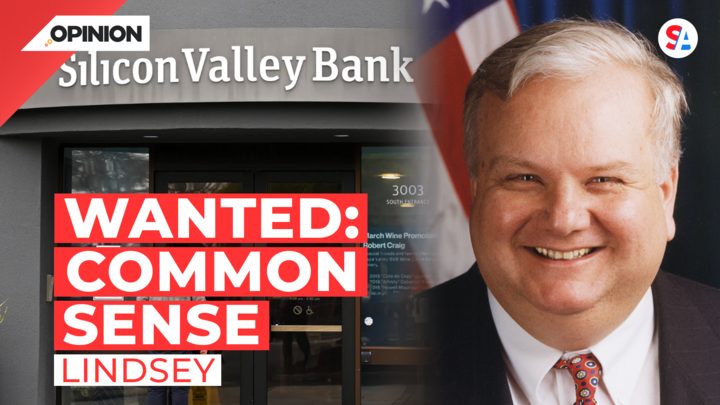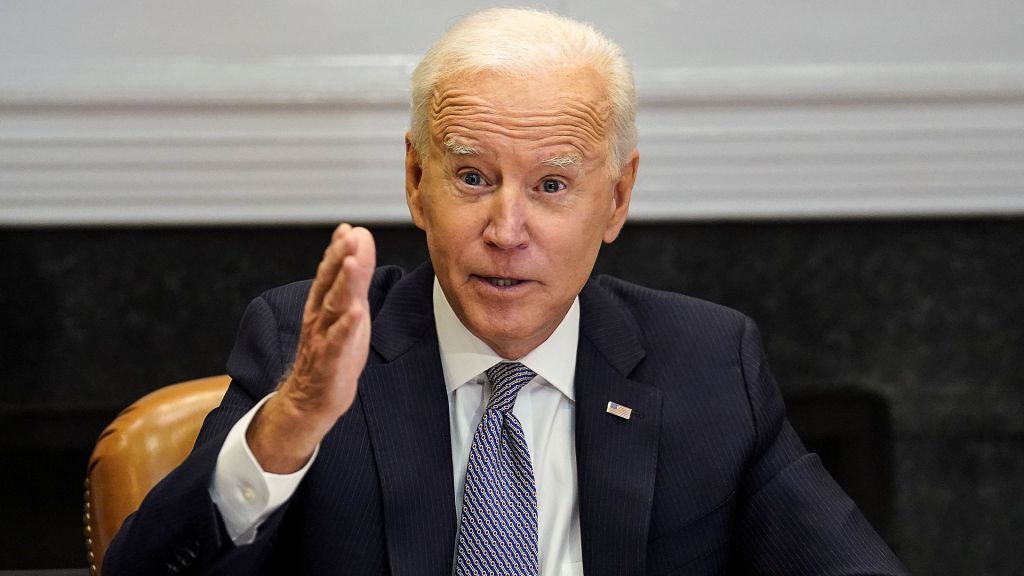
Commentary
-
Our commentary partners will help you reach your own conclusions on complex topics.
The big question now is what caused the demise of Silicon Valley Bank, otherwise known as SVB? Senator Warren of Massachusetts, and a lot of her Democrat colleagues, blame a 2008 bill that limited the full regulations of the law to banks that were over $250 billion. This was a bipartisan bill was passed because little banks really can’t afford to have dozens and dozens of examiners.
Senator Warner of my home state of Virginia remembered visiting a bank, which had a total of one branch and 19 employees. But there were over 30 Bank examiner’s sitting in that bank, trying to see what was going on. That’s a huge burden on the bank. And he and others supported the rollback. Well, not only was it a sensible rollback, but the Bank Policy Institute, which studies these matters, says that Senator Warren and her colleagues are just simply wrong. The bank would have passed, even if the 2018 bill wasn’t passed. So it wasn’t the lack of regulation that caused the demise of Silicon Valley Bank.
This in itself should be a little bit alarming. I mean, that means what are supposedly very tough regulations didn’t work. There’s a pretty clear reason for this. The SVB regulations and those at other banks were created largely by lawyers and bureaucrats. How do you actually carry out legislation by lots and lots of other functionaries? Well, you have to make it easy for them to understand and easy for them to carry it out. So that’s the only way to make it uniform across all banks. What you end up with is a check the box kind of regulation. You do this, you do this, you do this, you do this, you’re fine. Well, okay. But sometimes circumstances change, and maybe you should look for things that are outside checking the box.
The California State regulators failed to find any problem. The Federal Deposit Insurance Corporation failed to find any problem. The Federal Reserve Bank of San Francisco failed to find any problem.
The problems that I’m about to list actually could have been found by any 11-year old who played Monopoly a lot. They’re just common sense. First of all, the bank had no Chief Risk Officer for nine months from April 2022 to January 2023.
This is very much during the time that the Federal Reserve was aggressively raising interest rates, which are underpinning a lot of the risks that existed in Silicon Valley Bank. Why was there no red flag that they didn’t have a Chief Risk Officer in place? You know, that 11-year old would know that not having a Chief Risk Officer is just plain risky.
Second, what the bank did was they overbought government bonds, which wouldn’t mature for many years, despite the fact that the people who deposited in the bank were frequently pulling their money out. So in effect, the bank was borrowing short from depositors who could run and lending long. Again, no 11-year old monopoly player would do such a thing.
Third, and I think worse, is that this was all done at a period when rates were going up and those rates were determined by the San Francisco Fed. Remember, the Federal Reserve was one of the bank’s regulators. So if I was one of their regulators, and I knew that interest rates were going to go up, wouldn’t I have naturally warned them about being overexposed to long term bonds where they were going to lose money?
Never happened. Why didn’t the Fed train its supervisors to go into a bank and pay a special attention to that. After all, they were meeting every six weeks to raise rates … didn’t mention it to their supervisors. Although, by the way, the heads of supervision who oversee hundreds of employees certainly should have figured that out without being told. Again, 11-year old monopoly player would know this.
Then there was a lack of diversification. The bank pledged $5 billion to an environmental fund that really hadn’t been tested at all — the quality of its management, the choices of loans that it made. Now, that’s two and a half percent of the bank’s balance sheet. That’s a lot of money to commit to any investment, much less a completely untested one. And then to show just how poorly the regs function, former congressman and former chairman of the House Banking Committee, Barney Frank, sat on the board of another failing bank, Signature Bank.
Now, here’s the guy who wrote the regulations, sitting on the board, who couldn’t even tell something was going on, as a board member. Something’s wrong.
What we don’t need is yet more regulations. What we need is sensible enforcement of the existing regulations. Maybe we should some of those 11-year olds who would know better than our bank examiners. Just kidding. But what we need is more judgment, not more regulations. This is Larry Lindsey, Straight Arrow News.
-
President Biden just isn’t cool
For some Americans, politics is only about policy, while others prioritize core values, ideas, aspirations or beliefs. Still, for others, politics may be a reflection of culture, where voting serves as a symbolic act to proclaim cultural group identity. But for some Americans, who they vote for and support is more of a popularity contest,…
-
Federal Reserve policy should be more restrictive
The American economy is booming, with high GDP growth, record-low unemployment, and wage gains for median workers. Over the past few quarters, U.S. economic growth indicators have consistently outperformed official projections. But the U.S. Federal Reserve recently conceded that its policies might be too restrictive, hindering the full potential of the U.S. economy, which the…
-
Celebrate tight labor market, but don’t cut interest rates
While President Joe Biden has been celebrating U.S. economic success, many Americans are still unhappy about the economy. So who’s right? The most recent jobs report for February showed that while the unemployment rate rose slightly to 3.9%, job gains were higher than expected, with the total coming in at 275,000 versus the expected increase…
-
Social and economic class will define 2024 election
Following in the footsteps of FDR, Democratic support in the past hundred years has drawn largely from working-class individuals, labor unions, and civil society organizations. Republican support, conversely, tended to rely upon larger corporate donations and the support of high-income individuals. In 2024, these traditional roles are evolving, and the new reality of campaign finance…
-
Black swan events make next US president difficult to predict
In November, Americans will cast their votes to elect a new president and Congress. Despite significant indicators suggesting dissatisfaction with the economy, posing a challenge for President Biden’s potential reelection, predicting the winner remains challenging due to all the variables at play. Straight Arrow News contributor Larry Lindsey utilizes a recent Gallup poll to offer…
Latest Opinions
-
 AP Images
AP Images
Argentina asks to join NATO as Milei looks to enhance security, strengthen ties
-
 Getty Images
Getty Images
Utah students protest 'furries,' school admin deny problem
-
 Reuters/Jane Rosenberg
Reuters/Jane Rosenberg
Trump’s ‘hush money’ trial: Legal experts debate name coined by media.
-
 AP Images
AP Images
Black Chicagoans feel neglected as millions funneled to migrant crisis
-
 Envato
Envato
Congress wants to curtail ‘judge shopping.’ Can it act before the election?
Popular Opinions
-
In addition to the facts, we believe it’s vital to hear perspectives from all sides of the political spectrum.


